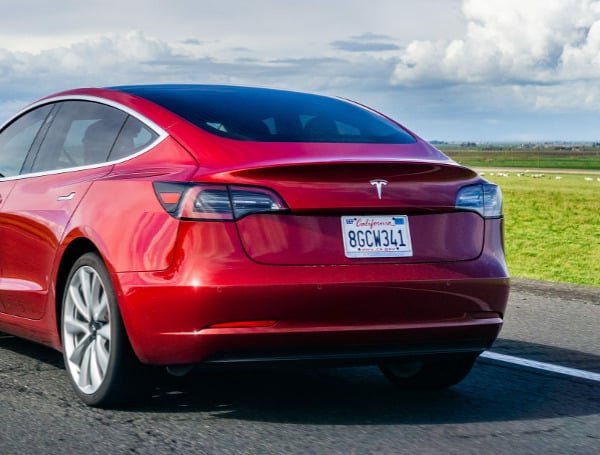Redwood Materials, a U.S-based battery materials company founded by Tesla co-founder J.B. Straubel, has received conditional approval for a $2 billion loan from the U.S. Department of Energy (DOE) for domestic battery cell production.
The DOE’s Advanced Technology Vehicle Manufacturing program, which helped Tesla develop its signature Model Y, is funding the loan, according to Bloomberg.
The program’s lending limit shot up to $55 billion by President Joe Biden’s signature Inflation Reduction Act (IRA), nearly four times its previous level.
In the news: US Shoots Down “High-Altitude” Object In American Airspace Off The Coast Of Alaska
“DOE’s support for this project represents a critical milestone in the United States’ commitment to establishing a domestic battery supply chain rooted in manufacturing and American innovation,” Redwood Materials said in a press release. “By localizing this critical supply chain and producing anode and cathode components at a gigafactory-scale in the US for the first time, Redwood is addressing perhaps the most important supply chain need in electrification and ensuring that the United States can deliver on its clean energy and sustainable transportation plans.”
The funding is “milestone-based” and will be delivered in several parts as the company hits construction and manufacturing goals, according to Redwood Materials.
The company anticipates that the project will create roughly 3,400 construction jobs and 1,600 full-time jobs, according to its press release. By producing battery materials at a “gigafactory scale” the company will be able to produce enough materials for more than one million electric vehicles per year.
“This is a super-exciting moment,” Straubel told Bloomberg. “It is the very tangible beginning of a U.S. supply chain for battery materials, and we’ll be ramping that up for quite a long time to come.
In the news Ronde Barber Honored To Go Into The Hall Of Fame As A Buc
Tax credits for battery manufacturers are a key component of the IRA, allowing battery makers to recoup roughly 35% of the cost of battery production, so long as it met the requirements to be considered made in America. Several automakers, both foreign and domestic, have announced or expanded multibillion-dollar factories for battery production in the U.S. after the legislation was passed.
In part, these requirements were intended to reduce U.S. dependence on China for lithium and other materials used in electric vehicles, a sector that China dominates.
However, this aggressive rash of new investment nearly quadrupled the projected cost of the tax credits, from the Congressional Budget Office’s initial estimate that the program would cost roughly $30.6 billion over the next 10 years. Private analysts now anticipate that the program will cost roughly $136 billion over the next 10 years, although the cost might increase as new projects are announced, according to Axios.
Android Users, Click Here To Download The Free Press App And Never Miss A Story. Follow Us On Facebook Here Or Twitter Here. Signup for our free newsletter by clicking here.

